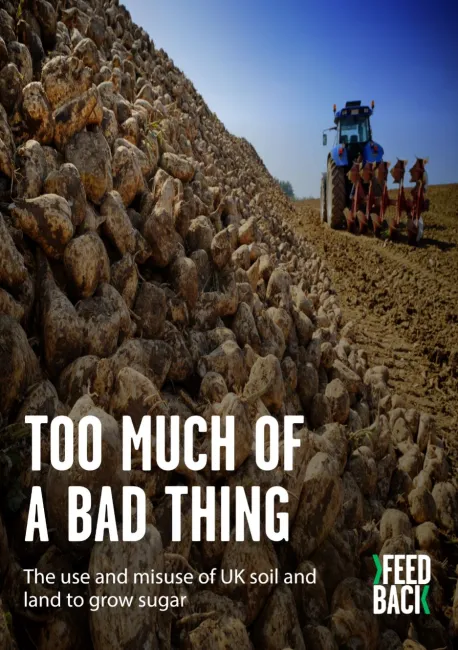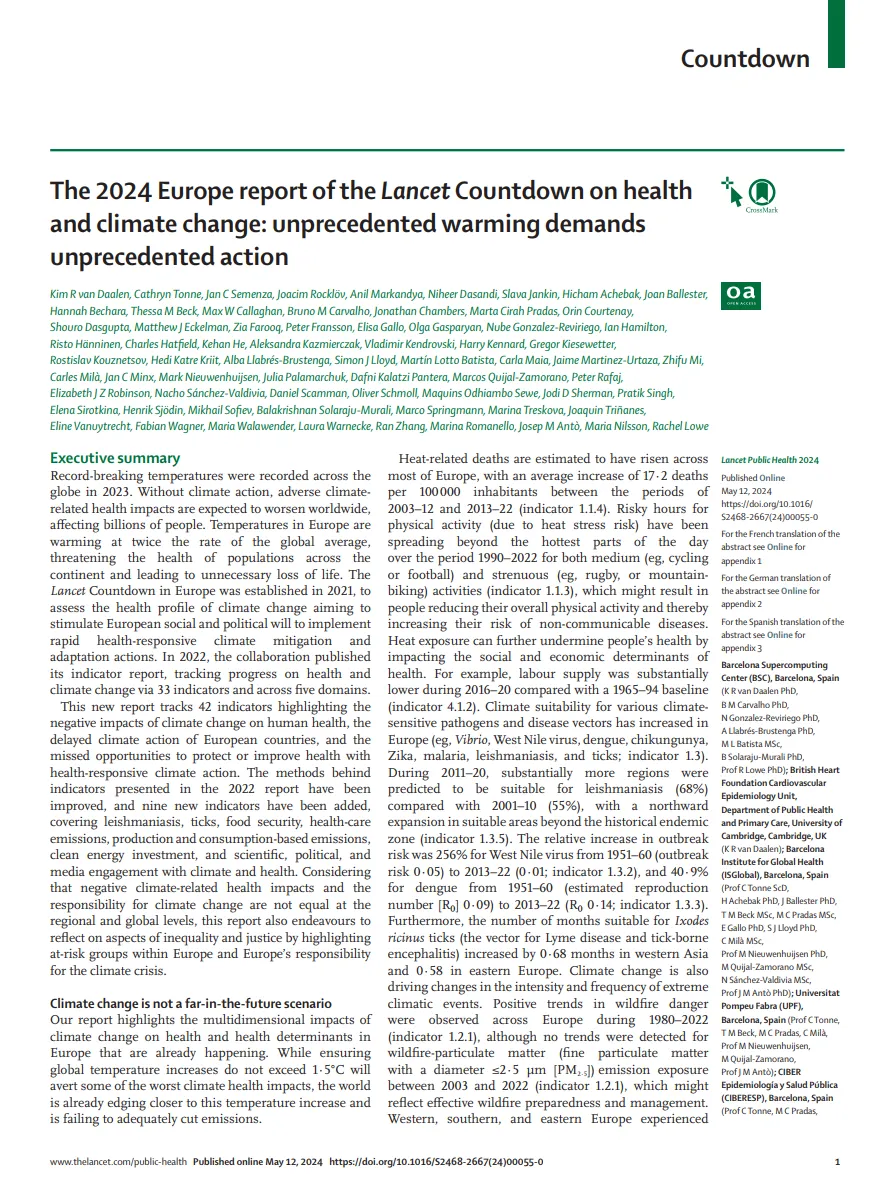This report from UK food waste charity Feedback examines the impacts of UK sugar production. It finds that the area of farmland used to produce sugar beet in the UK - 110,000 hectares - is similar to the area devoted to UK vegetable production. The report argues that sugar beet harvesting is damaging to the soil.

The impact on soil is because soil clings to the roots and is lost during harvest, accounting for an additional 13-21% of the UK’s annual topsoil loss. Soil is particularly wet and sticky at the time of year that sugar beet is harvested, making soil losses higher than for other crops such as potatoes. The soil is washed off the sugar beet at the sugar refiner and then sold, for example to builders and landscapers. The report frames this business model as “effectively converting some of the best agricultural soils in the country into products for industries like landscaping, thus removing these soils from the agricultural system.”
The report also finds that British Sugar - the only buyer of British sugar beet - produces enough sugar to exceed the World Health Organisation’s recommended free sugar intake by two-thirds, for the whole UK population. Nevertheless, British Sugar plans to increase its output by 50%.
The report argues that the health and soil impacts of sugar beet production mean that the supply of UK sugar beet should be constrained through policy.
Read the full report, Too much of a bad thing: The use and misuse of UK land and soil to grow sugar, here (PDF link). See also the Foodsource resource What causes different forms of malnutrition?




Comments (0)